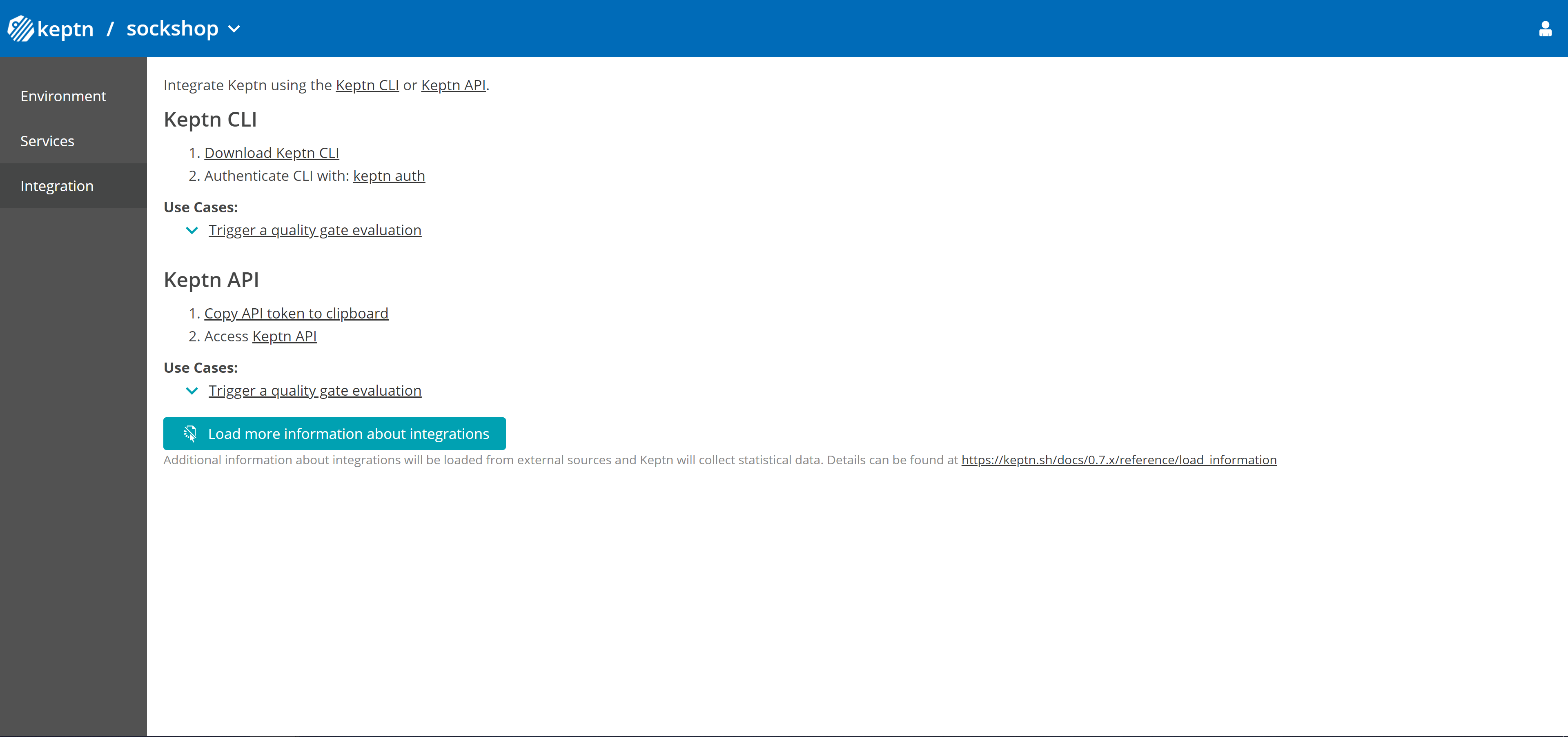Home / Keptn v1 Docs / Release 0.13.x / Reference / Loading integrations
Loading integrations
The Keptn Bridge provides now an additional page with information about integrations. This makes it easier to start using Keptn and also shows custom integrations.
This page also has a dynamic page content, which is loaded from https://get.keptn.sh/integrations.html when the user clicks the “Load more information about integrations”-Button. This page is stored in an S3 bucket on AWS. The AWS account is owned by the maintainer of the Keptn project, Dynatrace. The S3 bucket is configured in a way that each request is logged into another S3 bucket.
Which data is gathered?
When loading the external page, the request of the file contains personally identifying information:
- IP address;
- Version of Keptn deployment;
- Number of projects, stages, and services;
- Number of root events per service and day;
- List of installed Keptn-services including version thereof.
The request is logged in the format shown here: https://docs.aws.amazon.com/AmazonCloudFront/latest/DeveloperGuide/AccessLogs.html
All the information collected by the maintainer of the Keptn project will be handled in accordance with GDPR legislation and there is no disclosure of personally-identifying information. To not disclose personal information, the IP address in the log entries is exchanged by its hash value.
Why are we collecting this data?
The maintainer of the Keptn project collects the above-mentioned data for:
- aggregated statistics about the distribution of Keptn deployments per version;
- aggregated statistics about the distribution of installed Keptn-services;
- decisions about user interface improvements.
Before processing the collected data, any personally-identifying information is exchanged by hash values. This builds the foundation to not disclose personally-identifying information in any statistics.



